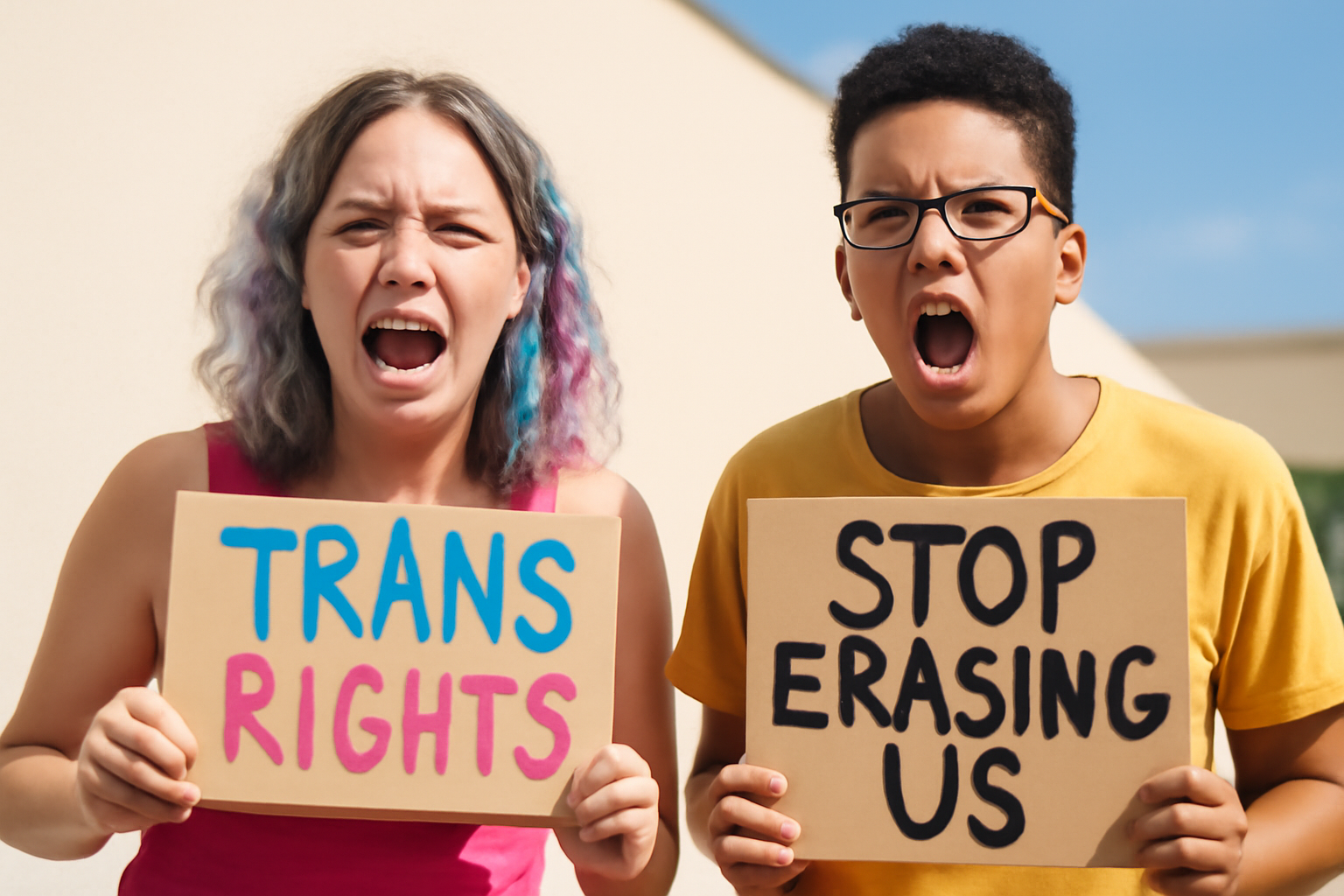
The recent announcement by governmental authorities has sent shockwaves through the LGBTQ+ community. In a controversial move, the current administration has proposed a policy that seemingly denies the existence of transgender and nonbinary individuals. This decision has prompted immediate backlash from civil rights groups, LGBTQ+ advocacy organizations, and concerned citizens alike.
Understanding the Proposed Policy
According to the leaked memo, the government is considering defining gender strictly based on biological attributes apparent at birth. Under this policy, gender would be recognized solely on the basis of male or female as indicated by birth certificates. This rigid definition fails to account for the diverse experiences of transgender and nonbinary people, whose identities may not align with the gender assigned to them at birth.
Experts and activists argue that such a policy is not only outdated but also harmful. It disregards the lived realities of millions who identify outside the traditional binary system of gender. Moreover, it raises concerns about potential discrimination in areas such as healthcare, employment, and education.
Reactions from the LGBTQ+ Community
In response to the proposed policy, LGBTQ+ organizations across the nation have expressed outrage. Many have organized protests and rallies, demanding that the government retract this proposal and respect the rights of transgender and nonbinary individuals.
"This is an attack on our very existence," said Maria Rodriguez, a spokesperson for a leading LGBTQ+ advocacy group. "We refuse to be erased by policies that seek to invalidate our identities." Similar sentiments have been echoed by transgender activists and allies who argue that this policy could lead to further marginalization of an already vulnerable community.
Legal and Social Implications
Legal experts warn that enforcing such a policy could face significant challenges in courts. The policy may conflict with existing anti-discrimination laws and protections that have been established over the years to safeguard the rights of transgender individuals. Furthermore, it may also violate human rights principles endorsed by international bodies.
Socially, the implications of this policy could be far-reaching. It may embolden anti-transgender sentiment and lead to increased violence and discrimination against transgender and nonbinary individuals. The fear is that such a governmental stance could legitimize prejudices, making it harder for transgender people to live openly and safely.
Calls for Action and Support
Activists are urging allies and supporters to take a stand against the policy. Mobilization efforts include petition drives, social media campaigns, and contacting elected representatives to voice opposition. The message is clear: allies must join forces with the LGBTQ+ community to prevent this policy from becoming a reality.
Support from the broader public is crucial. Many are encouraged to educate themselves about transgender and nonbinary issues, listen to the stories and experiences of those affected, and offer solidarity in meaningful ways.
Hope for Change
Despite the challenging circumstances, there is hope that the power of collective action can lead to a reversal of this proposal. Historical precedent shows that when communities come together to fight for justice, positive change is possible. The LGBTQ+ community and its allies have faced similar battles before and emerged stronger, and this fight is no different.
As the debate continues, one thing is certain: the voices of transgender and nonbinary individuals will not be silenced. Their existence, their rights, and their dignity deserve recognition and respect. In the face of adversity, the message remains firm: transgender and nonbinary people exist, they matter, and they will continue to fight for their rightful place in society.
This ongoing struggle for equality underscores the need for inclusive policies that reflect the diversity and complexity of human identity. It is a call to action for everyone to stand against discrimination and work towards a future where all individuals, regardless of gender identity, can live freely and authentically.
The outcome of this policy proposal remains uncertain, but the resilience and determination of those fighting against it are unwavering. In the end, it will be the strength and unity of the community that will drive the change needed to ensure all identities are respected and affirmed.
Related Posts
Triumphant Trans Woman Wins Legal Battle and Inspires Others to Stand Up for Their Rights
Breaking new ground: a landmark victory in transgender rights After battling in courtrooms and enduring endless challenges, Diana Portillo, a transgender woman, has secured a monumental victory in her decade-long fight against workplace discrimination. The result? Nearly $1 million awarded in a historic settlement. But this isn't just a win on paper—it represents a powerful precedent in combati [...]
Pride Month in Latin America: Protests and Demands for Equality
**Celebrating Pride and advocating LGBTQ+ rights in Latin America** Pride Month in Latin America was a lively mix where celebration met activism. Communities united, not just throwing a party but making a stand—demanding equality and pushing governments toward better protection and rights recognition. Throughout Latin America, pride events erupted in marches and cultural displays, each with a c [...]
Transgender Erasure Actions Implemented by National Park Service
```html Trump administration's impact on national park service and transgender recognition The Trump administration made notable moves in undermining transgender representation, which included directing agencies like National Park Service not include "T" and "Q" when they refered “LGBTQ” in any official communication. This move seems part a broader plan by this administration aimed at reducin [...]